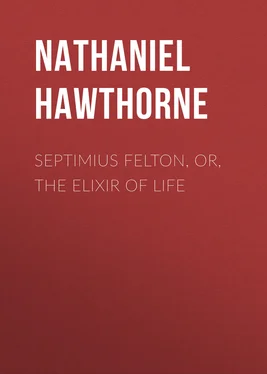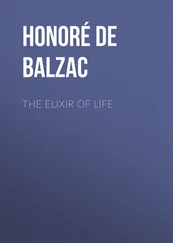Nathaniel Hawthorne - Septimius Felton, or, the Elixir of Life
Здесь есть возможность читать онлайн «Nathaniel Hawthorne - Septimius Felton, or, the Elixir of Life» — ознакомительный отрывок электронной книги совершенно бесплатно, а после прочтения отрывка купить полную версию. В некоторых случаях можно слушать аудио, скачать через торрент в формате fb2 и присутствует краткое содержание. Жанр: foreign_prose, foreign_antique, на английском языке. Описание произведения, (предисловие) а так же отзывы посетителей доступны на портале библиотеки ЛибКат.
- Название:Septimius Felton, or, the Elixir of Life
- Автор:
- Жанр:
- Год:неизвестен
- ISBN:нет данных
- Рейтинг книги:3 / 5. Голосов: 1
-
Избранное:Добавить в избранное
- Отзывы:
-
Ваша оценка:
- 60
- 1
- 2
- 3
- 4
- 5
Septimius Felton, or, the Elixir of Life: краткое содержание, описание и аннотация
Предлагаем к чтению аннотацию, описание, краткое содержание или предисловие (зависит от того, что написал сам автор книги «Septimius Felton, or, the Elixir of Life»). Если вы не нашли необходимую информацию о книге — напишите в комментариях, мы постараемся отыскать её.
Septimius Felton, or, the Elixir of Life — читать онлайн ознакомительный отрывок
Ниже представлен текст книги, разбитый по страницам. Система сохранения места последней прочитанной страницы, позволяет с удобством читать онлайн бесплатно книгу «Septimius Felton, or, the Elixir of Life», без необходимости каждый раз заново искать на чём Вы остановились. Поставьте закладку, и сможете в любой момент перейти на страницу, на которой закончили чтение.
Интервал:
Закладка:
Septimius, obeying his directions, took from his breast a miniature that hung round it; but, on examination, it proved that the bullet had passed directly through it, shattering the ivory, so that the woman's face it represented was quite destroyed.
"Ah! that is a pity," said the young man; and yet Septimius thought that there was something light and contemptuous mingled with the pathos in his tones. "Well, but send it; cause it to be transmitted, according to the address."
He gave Septimius, and made him take down on a tablet which he had about him, the name of a hall in one of the midland counties of England.
"Ah, that old place," said he, "with its oaks, and its lawn, and its park, and its Elizabethan gables! I little thought I should die here, so far away, in this barren Yankee land. Where will you bury me?"
As Septimius hesitated to answer, the young man continued: "I would like to have lain in the little old church at Whitnash, which comes up before me now, with its low, gray tower, and the old yew-tree in front, hollow with age, and the village clustering about it, with its thatched houses. I would be loath to lie in one of your Yankee graveyards, for I have a distaste for them,–though I love you, my slayer. Bury me here, on this very spot. A soldier lies best where he falls."
"Here, in secret?" exclaimed Septimius.
"Yes; there is no consecration in your Puritan burial-grounds," said the dying youth, some of that queer narrowness of English Churchism coming into his mind. "So bury me here, in my soldier's dress. Ah! and my watch! I have done with time, and you, perhaps, have a long lease of it; so take it, not as spoil, but as my parting gift. And that reminds me of one other thing. Open that pocket-book which you have in your hand."
Septimius did so, and by the officer's direction took from one of its compartments a folded paper, closely written in a crabbed hand; it was considerably worn in the outer folds, but not within. There was also a small silver key in the pocket-book.
"I leave it with you," said the officer; "it was given me by an uncle, a learned man of science, who intended me great good by what he there wrote. Reap the profit, if you can. Sooth to say, I never read beyond the first lines of the paper."
Septimius was surprised, or deeply impressed, to see that through this paper, as well as through the miniature, had gone his fatal bullet,–straight through the midst; and some of the young man's blood, saturating his dress, had wet the paper all over. He hardly thought himself likely to derive any good from what it had cost a human life, taken (however uncriminally) by his own hands, to obtain.
"Is there anything more that I can do for you?" asked he, with genuine sympathy and sorrow, as he knelt by his fallen foe's side.
"Nothing, nothing, I believe," said he. "There was one thing I might have confessed; if there were a holy man here, I might have confessed, and asked his prayers; for though I have lived few years, it has been long enough to do a great wrong! But I will try to pray in my secret soul. Turn my face towards the trunk of the tree, for I have taken my last look at the world. There, let me be now."
Septimius did as the young man requested, and then stood leaning against one of the neighboring pines, watching his victim with a tender concern that made him feel as if the convulsive throes that passed through his frame were felt equally in his own. There was a murmuring from the youth's lips which seemed to Septimius swift, soft, and melancholy, like the voice of a child when it has some naughtiness to confess to its mother at bedtime; contrite, pleading, yet trusting. So it continued for a few minutes; then there was a sudden start and struggle, as if he were striving to rise; his eyes met those of Septimius with a wild, troubled gaze, but as the latter caught him in his arms, he was dead. Septimius laid the body softly down on the leaf-strewn earth, and tried, as he had heard was the custom with the dead, to compose the features distorted by the dying agony. He then flung himself on the ground at a little distance, and gave himself up to the reflections suggested by the strange occurrences of the last hour.
He had taken a human life; and, however the circumstances might excuse him,–might make the thing even something praiseworthy, and that would be called patriotic,–still, it was not at once that a fresh country youth could see anything but horror in the blood with which his hand was stained. It seemed so dreadful to have reduced this gay, animated, beautiful being to a lump of dead flesh for the flies to settle upon, and which in a few hours would begin to decay; which must be put forthwith into the earth, lest it should be a horror to men's eyes; that delicious beauty for woman to love; that strength and courage to make him famous among men,–all come to nothing; all probabilities of life in one so gifted; the renown, the position, the pleasures, the profits, the keen ecstatic joy,–this never could be made up,–all ended quite; for the dark doubt descended upon Septimius, that, because of the very fitness that was in this youth to enjoy this world, so much the less chance was thereof his being fit for any other world. What could it do for him there,–this beautiful grace and elegance of feature,–where there was no form, nothing tangible nor visible? what good that readiness and aptness for associating with all created things, doing his part, acting, enjoying, when, under the changed conditions of another state of being, all this adaptedness would fail? Had he been gifted with permanence on earth, there could not have been a more admirable creature than this young man; but as his fate had turned out, he was a mere grub, an illusion, something that nature had held out in mockery, and then withdrawn. A weed might grow from his dust now; that little spot on the barren hill-top, where he had desired to be buried, would be greener for some years to come, and that was all the difference. Septimius could not get beyond the earthiness; his feeling was as if, by an act of violence, he had forever cut off a happy human existence. And such was his own love of life and clinging to it, peculiar to dark, sombre natures, and which lighter and gayer ones can never know, that he shuddered at his deed, and at himself, and could with difficulty bear to be alone with the corpse of his victim,–trembled at the thought of turning his face towards him.
Yet he did so, because he could not endure the imagination that the dead youth was turning his eyes towards him as he lay; so he came and stood beside him, looking down into his white, upturned face. But it was wonderful! What a change had come over it since, only a few moments ago, he looked at that death-contorted countenance! Now there was a high and sweet expression upon it, of great joy and surprise, and yet a quietude diffused throughout, as if the peace being so very great was what had surprised him. The expression was like a light gleaming and glowing within him. Septimius had often, at a certain space of time after sunset, looking westward, seen a living radiance in the sky,–the last light of the dead day that seemed just the counterpart of this death-light in the young man's face. It was as if the youth were just at the gate of heaven, which, swinging softly open, let the inconceivable glory of the blessed city shine upon his face, and kindle it up with gentle, undisturbing astonishment and purest joy. It was an expression contrived by God's providence to comfort; to overcome all the dark auguries that the physical ugliness of death inevitably creates, and to prove by the divine glory on the face, that the ugliness is a delusion. It was as if the dead man himself showed his face out of the sky, with heaven's blessing on it, and bade the afflicted be of good cheer, and believe in immortality.
Читать дальшеИнтервал:
Закладка:
Похожие книги на «Septimius Felton, or, the Elixir of Life»
Представляем Вашему вниманию похожие книги на «Septimius Felton, or, the Elixir of Life» списком для выбора. Мы отобрали схожую по названию и смыслу литературу в надежде предоставить читателям больше вариантов отыскать новые, интересные, ещё непрочитанные произведения.
Обсуждение, отзывы о книге «Septimius Felton, or, the Elixir of Life» и просто собственные мнения читателей. Оставьте ваши комментарии, напишите, что Вы думаете о произведении, его смысле или главных героях. Укажите что конкретно понравилось, а что нет, и почему Вы так считаете.












